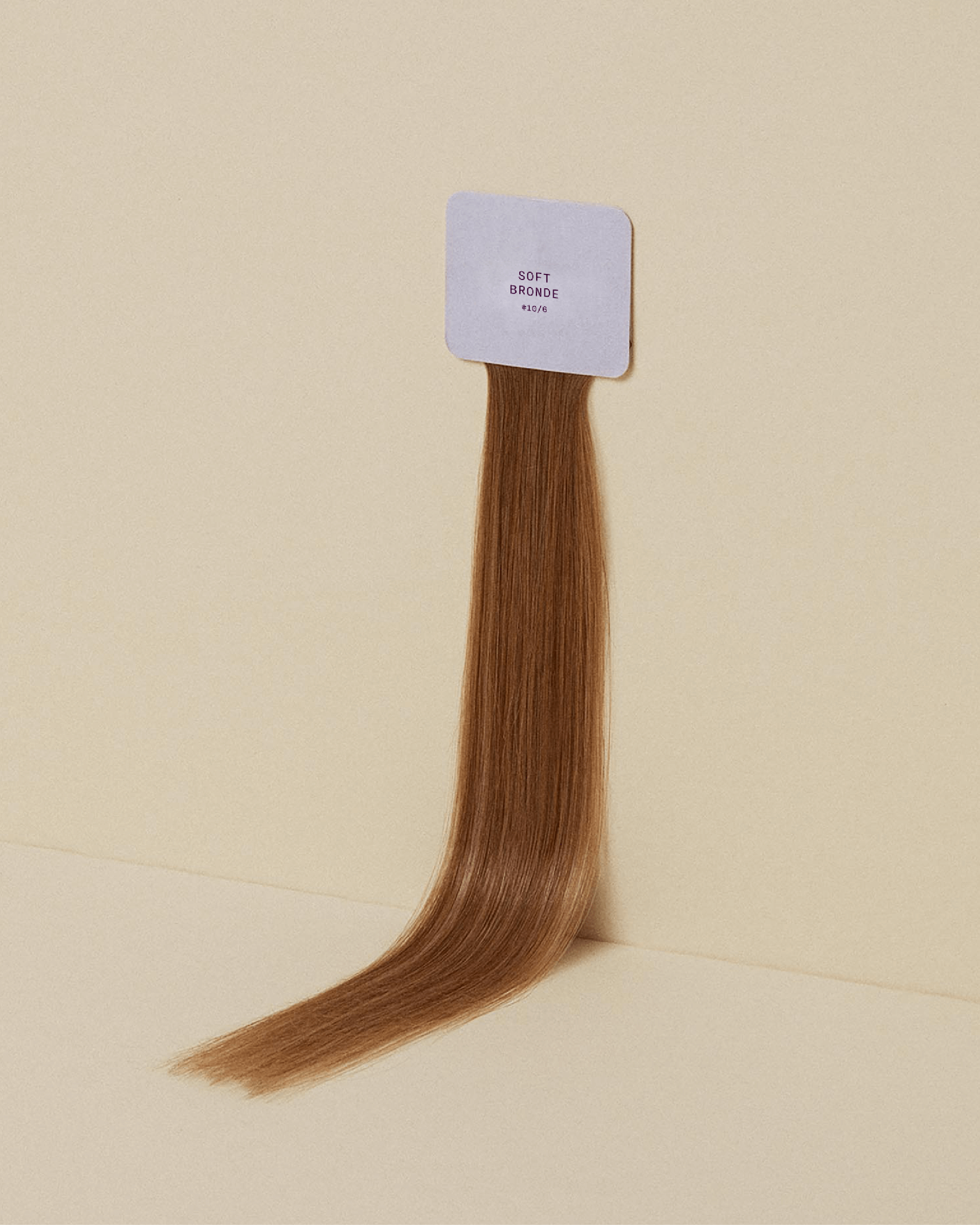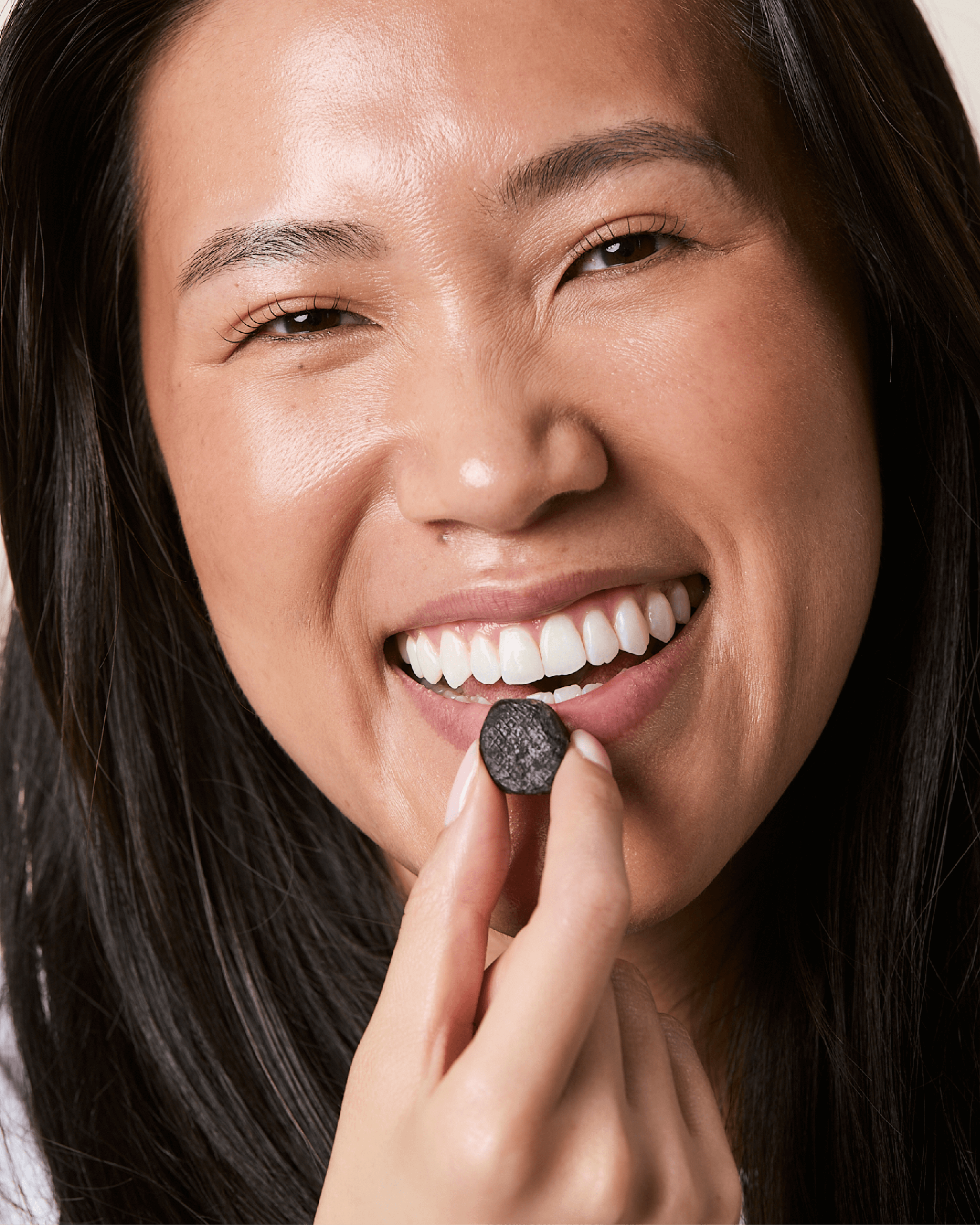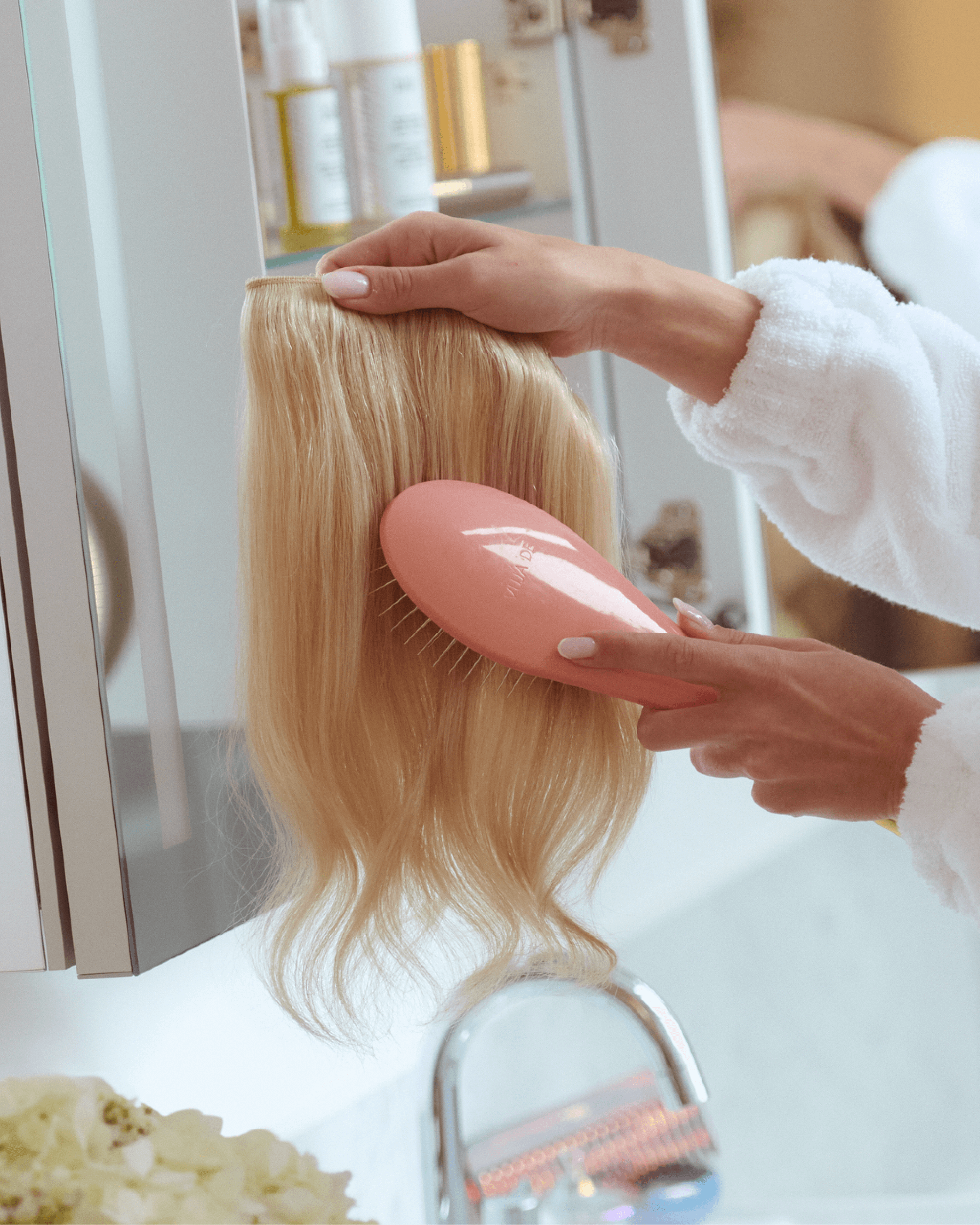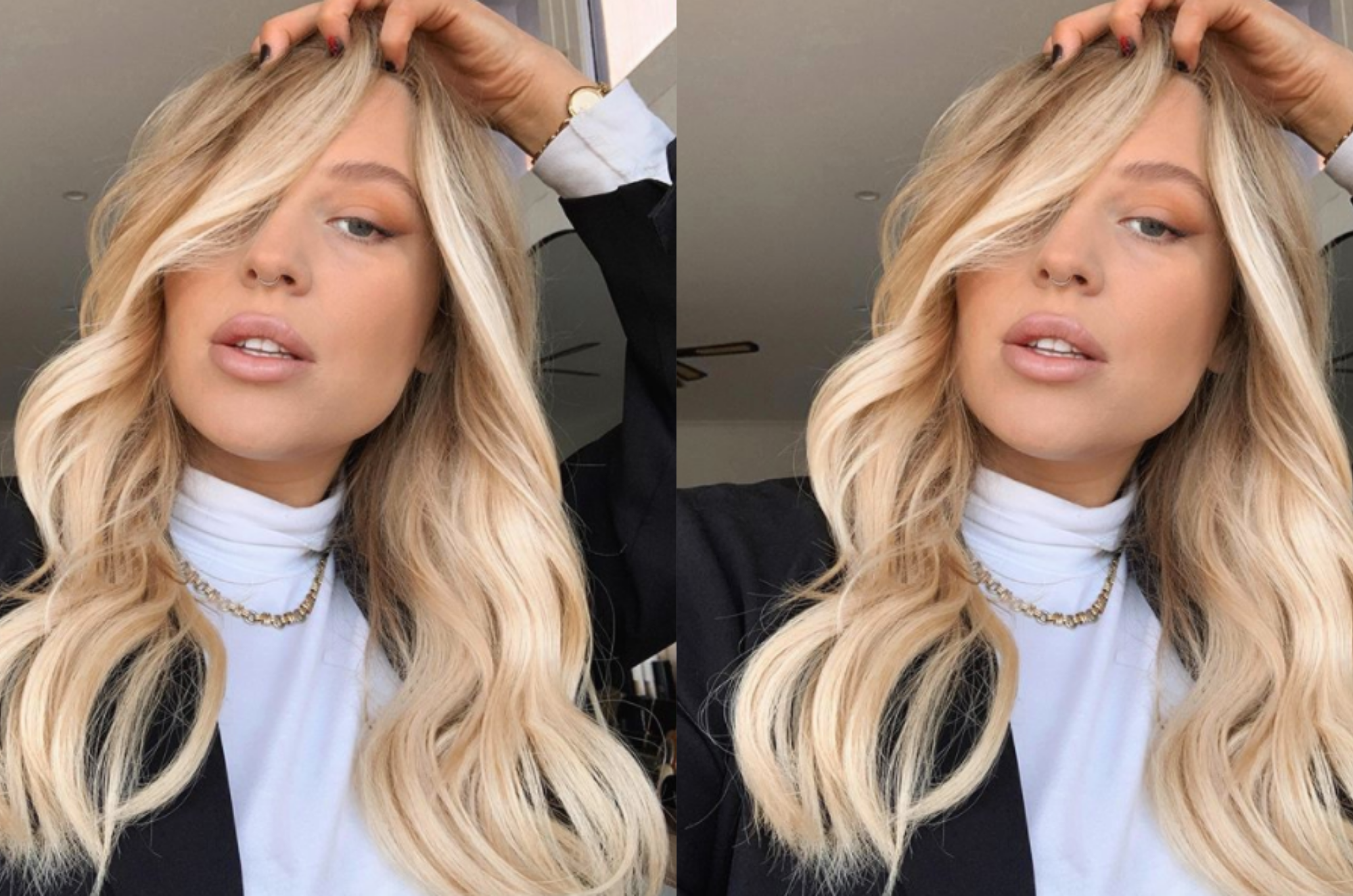Are you scratching your head wondering how do hair extensions work?
Well, because there are so many types of hair extensions, there is no one size fits all answer to this question.
Just as there is no one size fits all solution when it comes to hair extensions, other than Halos, of course.
While I might sound a little bias, Halo Hair extensions are the only hair extensions suitable for all hair types, even the thinnest most damaged of strands.
But more on that later.
Let me tell you all about how hair extensions work and some of the most popular types.
From clip-ins to microbeads, bonded extensions, tape and of course, halos, here is your guide to hair extensions to help you decide which type is best for you.
How Do Clip-in Hair Extensions Work?
If you've heard of hair extensions, you've heard of clip-ins.
If you're a millennial these probably hit their popularity peak while you were in high school.
So, for everyone else, this was early to mid-2000s.
And while mostly only great things have emerged from the early and mid naughties, I can't say clip-in hair extensions are a trend I'm too eager to see resurface
So, do you actually know what clip-in hair extensions are and how they work?
Clip-in extensions are whefts of hair with bonded clips and can be used for volume and length.
So how do clip-in hair extensions work?
You section your hair, snap the clip open, and clamp them closed at the roots of your hair.
While this sounds relatively easy, it does take some time, practise and patience to get the hang of.
Depending on the number of clip-ins you're using this can also be a lengthy process.
The benefit of these temporary hair extensions is that they're low maintenance and they require zero professional input.
You can place them entirely by yourself without the help of a hairdresser.
Sounds great, right?
Wrong.
A major issue with clip-in hair extensions is, they're EXTREMELY damaging for your hair.
So, while they might sound easy, breezy, they're actually the opposite.
Clip-in hair extensions attach directly to your roots. This adds a whole lot of extra weight to your strands, creating pressure and pulling, which creates hair loss and bald spots.
That's right, bald spots.
The constant pulling by the weight of the weft is not the only problem either.
The clips themselves create friction on the attached strands causing further thinning.
Whether like me, you have terrible high school flashbacks involving poorly blended clip-ins, or you love them, there is always a better alternative.
Read Are Halo Hair Extensions Better Than Clip-ins

How Do Tape-in Hair Extensions Work?
Tape-in hair extensions work just like clip-ins, only they use, well tape, instead of clips.
Another difference between tape and clip-in hair extensions is that tape extensions are permanent and need to be installed by a stylist.
Not only that, but they also need to be adjusted regularly too.
So, while they're price might seem appealing, to begin with, trust me, it adds up after a trip to the salon every few weeks!
Tape in hair extensions add volume and length to your locks using tape, glue or other adhesives to stick to the surface of your strands.
As I said, very similar to clip-ins.
So, if tape in hair extensions work like clip-in ins, are they just as damaging?
I'm so glad you asked, because yes. Yes, they are.
Tape-in hair extensions are very damaging.
Not only do they attach to your strands using harmful adhesives which can corrode your hair and wear it down, but the removal process is pretty brutal too.
To remove tape-in hair extensions, you have to rip the adhesive off your strands.
So this is kind of like waxing expect that hair your ripping out from the roots is on your head!
So, tape-in hair extensions are not just a pain; they're also painful and plain dangerous.
That's a no from me.

How bonded Hair Extensions Work
Keratin bonded hair extension get a lot of praise in the hair world.
They have soared in popularity due to the fact they're low maintenance and look natural.
And we don't want to be the bearers, or should we say, hairers, of bad news, but they ain't all that.
While they're less damaging than clip-in and tape hair extensions, they still cause their fair share of stress for your strands.
So, how do bonded hair extensions work?
The reason keratin bonded hair extensions aren't AS damaging as some others is that they bond to the hair's molecular structure with keratin.
Keratin is a natural protein which helps to form your locks, so this isn't so bad.
They can also be left unattended for around six months, so they don't need as much maintenance as tape extensions.
So, how do keratin extensions damage your hair?
I mentioned above the keratin side of the installation process isn't so damaging, but the heat used to bond the hair?
That's a whole other story.
Heat is highly damaging for hair and one of the leading causes for hair breakage!
Bonded hair extensions are also extremely inflexible and cause friction against your hairs natural movement.
This creates pressure, which weakens your hair and causes it to fall out.
Not to mention bonded hair extensions are also damaging for your wallet, they can also be pretty itchy too.

How Do Micro-bead Hair Extensions Work?
One of the OG hair extension methods, microbeads have declined in popularity over the last few years.
And can you guess why?
Because they hurt your hair!
LOUDER FOR THE PEOPLE IN THE BACK.
Sadly, though microbeads have been overtaken in popularity by hair extensions which are equally as harmful.
So, how do micro-bead hair extensions work?
Again, as their name suggests, the attach to small strands of hair at the root using beads which are clamped closed to keep the hair in place.
They need to be adjusted by a hairdresser every six weeks and brushed and detangled thoroughly on a regular basis.
The damage caused by micro-beads is mostly to do with the weight of the extensions and the tension they add to the attachment site.
The weight of these extensions, and all extensions mentioned above for that matter, creates a constant pulling on your hair.
Which literally pulls the hair out.
This alone is enough to create some severe thinning and bald spots, but combined with the rubbing at the bead site?
Might as well just say goodbye to your hair now.

How Do Halo Hair Extensions Work?
The angels of the hair extensions world... literally.
I'm gotta tell you straight away; Halo Hair extensions are the only hair extensions that do not damage your hair.
And that's the truth.
If anyone says differently, they're lying.
#hatersgonnahate.
The reason halo hair extensions don't damage your hair is that they do not attach to your hair.
Instead, they sit atop your head like a halo.
Because they do not attach to your strands specifically, they cause no friction, no pressure, no tugging, no pulling, no hair loss and NO DAMAGE what so ever.
Read Do Halo Hair Extensions Damage Your Hair?

The MEDIUM Halo in col. Beige Blonde #613
So unlike clip-ins, bonds, tape and beaded hair extensions Halos are risk-free.
They are also the best hair extensions for thin hair and damaged hair too.
This is because your natural hair can heal while you're wearing your halo without creating further harm.
They are even gentle enough to be worn every day.
Read Can you wear halo extensions every day?

@nonnymulholland wears the THICK Halo col. #4/6
Another benefit of halo hair extensions is no bulk clips which are hard to hide when styling.
The halo sits on your head with an invisible nylon wire, which is super easy to hide in any style!
And while you might think your styling options would be limited using halo hair extensions, it's actually the opposite.
From up-styles to sleek and straight, big bouncy voluminous curls to messy buns and beach waves, the halo adds bulk and length to any style under the sun.
Read 10 Hairstyles You Can Achieve With Hair Extensions

The MEDIUM Sitting Pretty Halo in col. Beige Blonde + Dark Blonde 613/10. Styled by @emmachenartistry
You might also like:
Read more

Hair, there and everywhere! Losing your locks got you stressing? Well, fret not because, one, that will only make things worse, and two, because shredding some strands is totally normal. Let's talk...
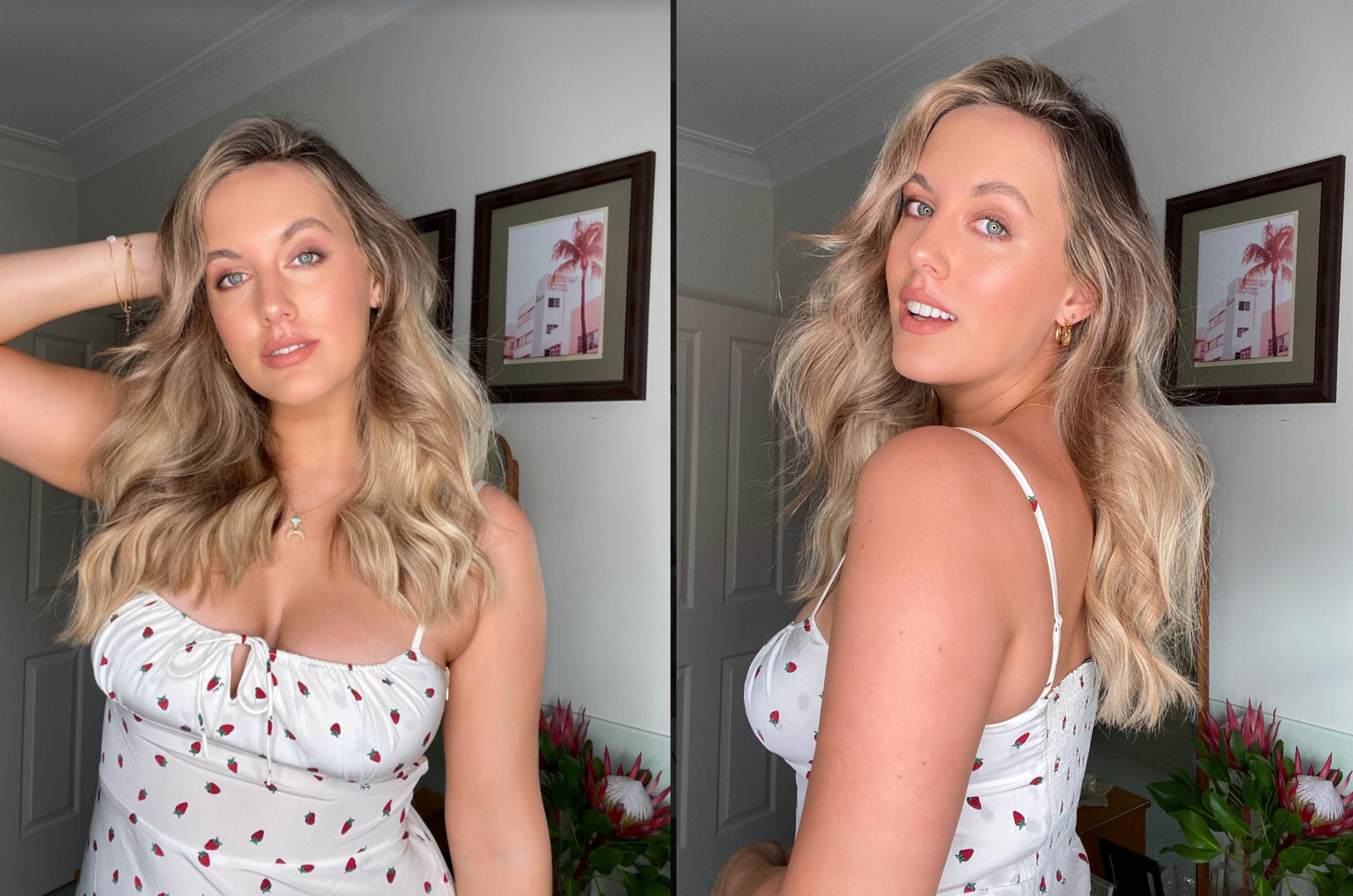
Hey shawty, want to grow your short hair out fast? Here are eight simple steps to get your long strands back ASAP.
